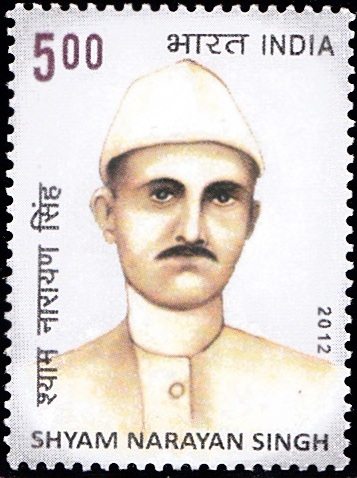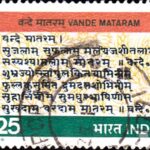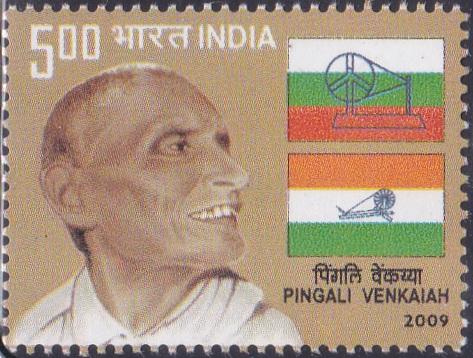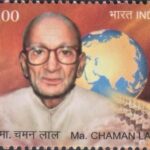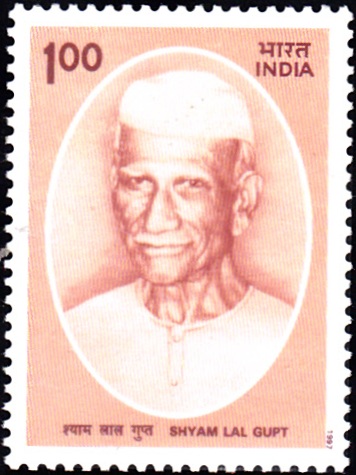
Shyam Lal Gupt ‘Parshad’
A commemorative postage stamp on Shyamlal Gupta, writer of Indian Flag Song, “Jhanda Uncha Rahe Hamara” :

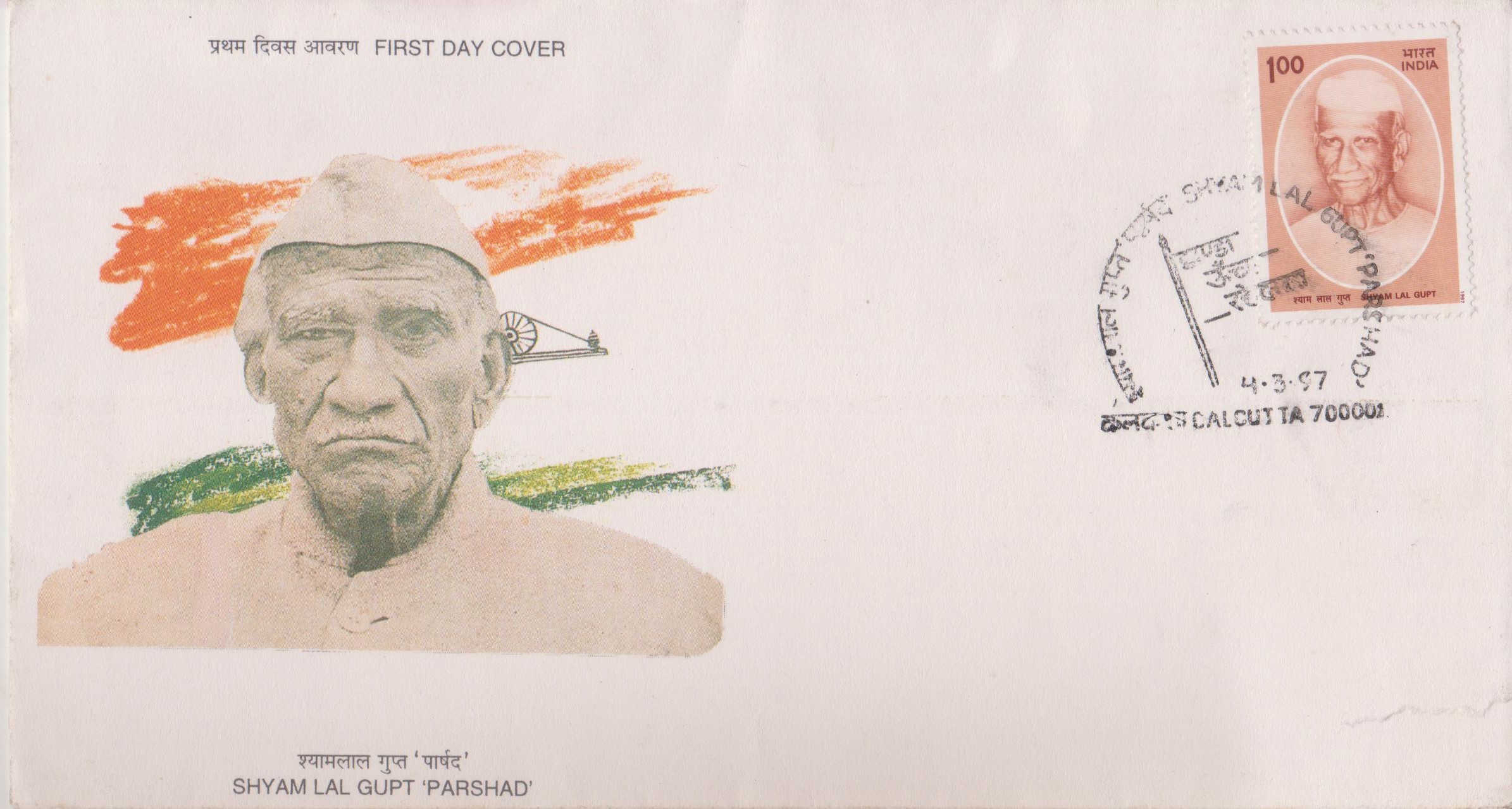 Issued by India
Issued by India
Issued on Mar 4, 1997
Issued for : The Department of Posts is happy to issue a special commemorative postage stamp to mark the occasion of the writing of this memorable song and honour the memory of Shyam Lal Gupt “Parshad“.
Design Credits :
Stamp and f.d.c. : Parshad Smriti Sansthan
Cancellation : Smt. Alka Sharma
Type : Stamp, Mint Condition
Colour : Two
Denomination : 100 Paise
Overall size : 3.91 x 2.90 cms.
Printing size : 3.60 x 2.55 cms.
Perforation : 13.5 x 13.5
Paper : Matt Chromo
Number of Stamps Printed : 0.4 Million
Number per issue sheet : 40
Printing Process : Photo–offset
Printer : Calcutta Security Printer Ltd. Kanpur
Name : Shyam Lal Gupta Parshad
Born on Sep 9, 1896 at Kanpur, Uttar Pradesh, India
Died on Aug 10, 1977
About :
- Shyam Lal Gupt ‘Parshad‘ was born on 9th September, 1896 in Narwal Village, Kanpur, Uttar Pradesh. He joined the freedom movement in 1915 and made Fatehpur district his area of activity. From 1920 onwards for a number of years he was Chairman of the Fatehpur District Congress Committee. During the Non-Cooperation Movement, as Chairman of the Fatehpur Congress Committee he was jailed. He was declared the most dangerous revolutionary by the District Collector and sent to Central Jail, Agra where he was kept under special security. In 1930 he was again jailed for his role in the Salt Satyagraha. During his frequent imprisonment, for his role in the freedom movement he came into association with towering nation leaders like Motilal Nehru, Mahadev Desai, Ram Naresh Tripathi and others.
- On 3/4th March, 1924 Shyam Lal Gupt wrote the song “झंडा ऊँचा रहे हमारा“ on the National Flag. Gandhiji wanted a song in honour of the National Flag in the language of the ordinary people, and this song composed by Shyam Lal Gupt seemed to fulfil this need. The first and last two stanzas of this song which was composed in seven stanzas, became popular and were sung by freedom fighters all over the country during the struggle for independence. On 13th April, 1924, the song was first sung in a gathering at Phulbag, Kanpur in remembrance of the Jallianwala Bagh incident. The gathering included late Pandit Jawaharlal Nehru, the first Prime Minister of independent India. In Nehru‘s words, “People may not know, Parshadji, but the whole country is familiar with his song on the National Flag.“ In 1952 Shri Shyam Lal Gupt recited the song himself at the Red Fort.
- Shyam Lal Gupt worked tirelessly for the cause of Hindu-Muslim unity, popularisation of Khadi and emancipation of women and children in the rural areas. He preferred to stay away from active politics and devoted his life to social work. He is responsible for the establishment of ‘Ganesh Seva Ashram’ at Narwal and a number of orphanages, schools and teaching institutions. He was awarded Padamshree on 26th January, 1976.
- Text : Parshad Smriti Sansthan.



